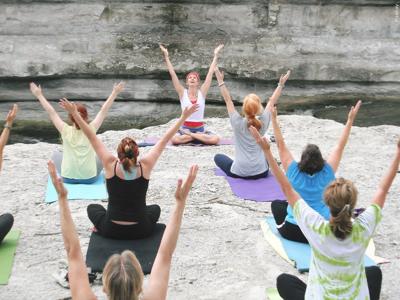MADISON (WKOW) — Life can be stressful, and things like the COVID-19 pandemic, the economy and gas prices don't help.
And it's not just adults; kids are stressed too.
UW Health Kids says today's children have high levels of stress, and that's why Dr. Mala Mathur, pediatrician and mental health expert with UW Health Kids, says it's important for parents to practice stress management with their kids.
Simple activities like yoga, mindfulness and meditation can make a huge difference in preventing the physical or mental health challenges that stem from unaddressed stress. With the extra free time summer affords many families, Dr. Mathur says it may be a great time to start.
Mindfulness, in essence, is focusing on the moments and acknowledging your thoughts and feelings. This can be helpful with how fast-paced life can be and how many distractions come from our obligations and screens.
Another great activity is yoga, which combines posture, breathing and meditation to focus the mind and body.
Yoga can help kids learn to live in the moment and focus on the task at hand and handle problems peacefully, according to Mathur. Some research has even shown that yoga provides benefits for those who have attention deficit hyperactivity disorder (ADHD), anxiety, depression, school performance, sleep, behavior problems and eating disorders, she said.
“These activities benefit both parents and kids and can be a potentially effective therapy for kids coping with emotional, mental, physical and behavioral conditions,” she said. “I highly recommend families try them out this summer because it can improve your mood and decrease anxiety and depression symptoms.”
If you'd like to practice meditation with your kids, here are a few helpful tips from UW Health Kids:
- When teaching kids about meditation, the appropriate length of time and frequency of meditating can vary by age. The American Academy of Pediatrics recommends:
- Preschool children: A few minutes per day
- Grade school children: 3-10 minutes twice a day
- Teens and adults: 5-45 minutes per day or more based on preference
- Try incorporating deep breathing into a bedtime routine. It can help children wind down for the night and make meditation easier to do when other situations arise.
- Remind grade schoolers and teens to take a few deep breaths before answering a difficult question at school, taking a test or before an athletic event.
- As young children learn to manage strong emotions, deep breathing can be part of the process — especially before and after time outs
“The simple act of teaching children how to stop, focus and just breathe could be one of the greatest gifts you give them,” Mathur said.














